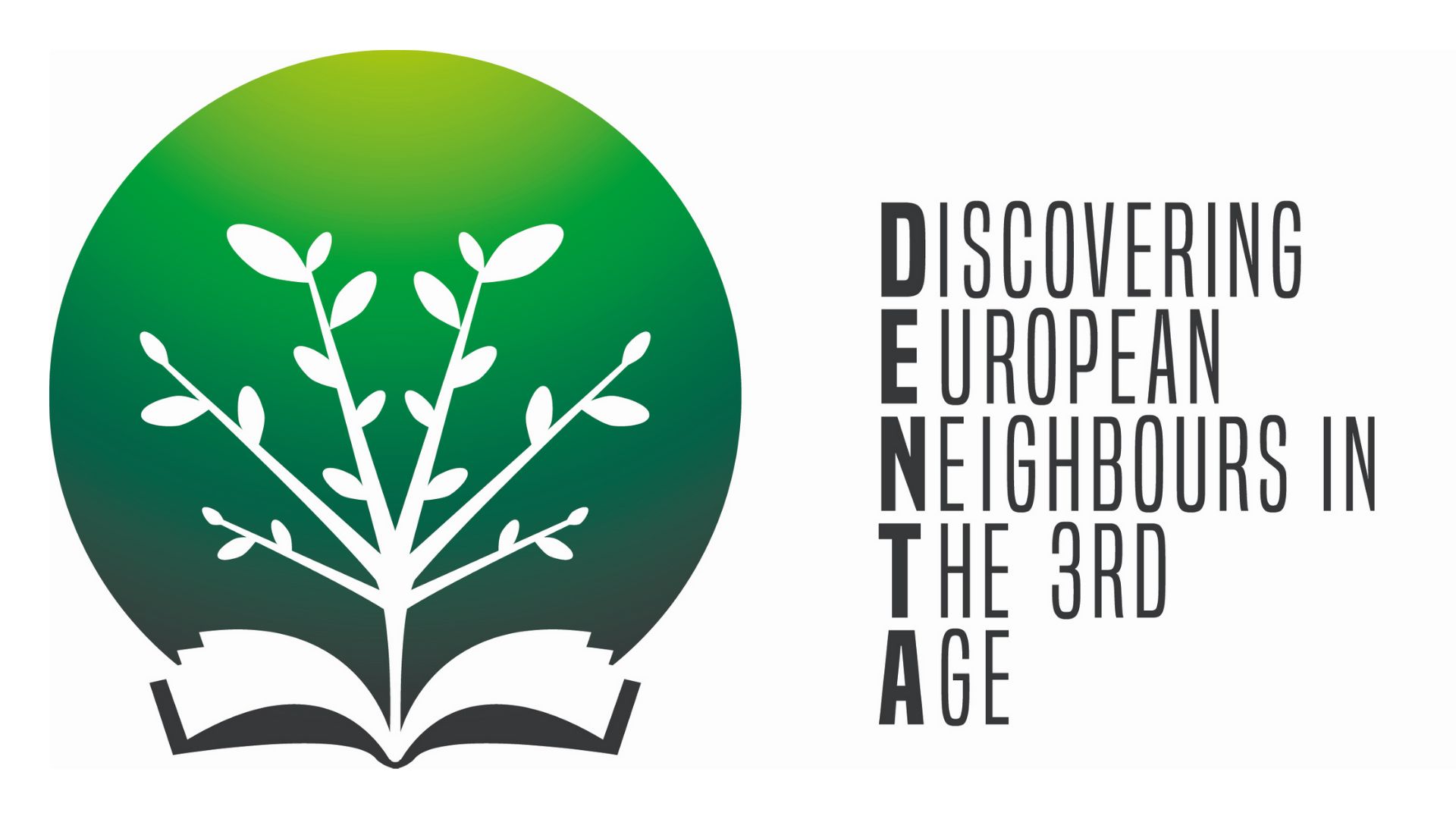by interviews, videos, background Information and a lively exchange
Webiste: http://www.denta-europe.eu/
Project duration: October 2019 – September 2021
How do European neighbors live in the 3rd age?
Within the Erasmus+ partnership “Discovering European Neighbours in the Third Age” (DENTA) 8 organizations from 6 European countries (Germany, Bulgaria, Romania, Serbia, France and Italy) worked together from October 2019 to September 2021 to find out more about the lives of people aged 60 and older based on more than 120 interviews. The unique European project aimed to give a lively insight into the daily life of people in the 3rd age, their hobbies, interests, challenges and wishes, and furthermore to learn about their life stories. An important priority was the social inclusion of older people, thus giving them the opportunity to be heard, to show them the respect of being the essential part of the society they in fact are. Furthermore, to underline their importance for younger generations and people from other European countries to learn and reflect on how the 3rd age can be shaped.
The results presented on the project website denta-europe.eu consist of more than 120 interviews in English and the respective national language with photos and more than 24 case study videos. The development of a historical “timeline” and a collection of socio-economic data help to understand the interviews in the context of different social and socio-political conditions of this generation in the different countries. Through an analysis of all interviews, a comparison was made between the conditions of the interviewees, their activities and interests.
“This project has been a significant opportunity to deepen our collaboration and mutual understanding between European neighbours. A bridge has been built between generations and between neighbours in other European countries, a bond of friendship was formed, so to speak, from the Black Sea across Europe and the Mediterranean to the Atlantic. The results of the interviews, the encounter and cooperation contributed to reduce prejudices and strengthen the awareness of a common Europe”, said DENTA Coordinator Carmen Stadelhofer.
The project coordinator organization ILEU e.V., Ulm, Germany, and the partners University of Ruse Angel Kanchev, Bulgaria; Plattform AGORA, Sofia, Bulgaria; Universität des 3. Lebensalters an der Johann Wolfgang Goethe-Universität Frankfurt a. M. e. V., Germany; LSFTB – The Writers’ League Timișoara Banat Branch, Romania, ZAPROKUL – Center for Studies in Cultural Development, Belgrade, Serbia; UNISULKY – UNIVERSITÀ POPOLARE DEL SULCIS, Italy; and ADAPHM – Association pour la Diffusion et l’Animation du Patrimoine Historique du Morbihan, France.
Each of the 8 partner organizations implemented and supported a group of volunteer learners who worked closely together throughout the project and exchanged results and many project related topics online with the other partners‘ groups and participants. Learners received qualification trainings in interviewing, creative writing, photo and video editing, desktop research, translation, use of new media and video conferencing, etc. Despite the global Covid-19 pandemic, the groups worked continuously with the help of online meetings and ICT. The media literacy of all participants, almost 100, has been significantly strengthened, social and intercultural dialogue was promoted and the principle of lifelong learning was internalized.
Unfortunately, due to the Corona pandemic, four out of six planned face-to-face partner meetings could not be held. They were partly compensated by online meetings, as well as the international online conference „Sharing beyond borders – New ways of care, communication and cooperation of older people along the Danube and in Europe in times of COVID-19“ in July 2020. Despite these changed project conditions, very good and crucial results were achieved thanks to the great commitment of all project partners and their openness to new technologies.
Read more on the project website www.denta-europe.eu
Funded by:

